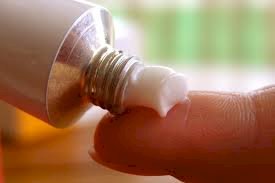Know The Complete Psoriasis Treatment Regime
How does psoriasis begin and affect the person? What are the treatments to keep them in check? Is there any permanent cure for this skin condition?

What's Right for You?
Depending on how bad your psoriasis is comes the type and number of treatments you need. How much of your body it covers determines it.
Mild = less than 3%
Moderate = 3% to 10%
Severe = more than 10%
Ointments and Creams
Usually, the first treatment for mild psoriasis are medicines you rub on your skin called topicals. When you use them after a bath or shower petroleum jelly or thick creams can help. Made with ingredients that reduce swelling and slow the growth of skin cells, your doctor may also prescribe stronger products.
Covering Up Topical Meds
Unless your doctor tells you to, don't try this. Sometimes it can make treatments that go on your skin work better as it’s called occlusion. The method could make side effects worse whereas the medicine may be too strong to cover. After you put the product on your skin, cover the area with plastic wrap, waterproofing dressing, nylon fabric, or cotton socks if your doctor says ok.
Light Therapy (Phototherapy)
Stopping skin cells from growing too fast is by shining ultraviolet rays onto your psoriasis. Remember not to sunbathe or hop in a tanning bed. Making your symptoms worse is this. On the type and amount, you need the doctor will advise you. Usually painless is this treatment. Using a laser or a lightbox is this done. It is also possible that you may take the medication with it. It could raise your risk of skin cancer when you like getting sun.
Laser Therapy
A doctor targets psoriasis with a concentrated beam of light in this treatment. As with other types, healthy skin around the area isn’t harmed or exposed to as many UV rays. After a series of sessions over 4 to 5 weeks, the plaques thin. For a while, your symptoms might go away. Though some say they get mild redness and blisters, the process is painless for most people.
Pills and Liquids
Your doctor may prescribe pills or liquids if skin treatments don’t work. Some come as a shot whereas usually these are taken by mouth. If you have moderate or severe psoriasis they can help clear up your skin and prevent flares. Here we find Acitretin (Soriatane), the apremilast (Otezla), cyclosporine (Apo-Cyclosporine, the Gengraf, Neoral, Sandimmune), and the methotrexate (Rheumatrex, Trexall) to be included as most common choices.
Shots and IV Treatments
Treating some types of moderate and severe psoriasis are strong medicines called biologics. Seeming to help fuel the disease is a specific part of the immune system that is blocked. These also come as injections that you can give yourself at home. While others are taken at a doctor’s office as they have to go directly into a vein. Adalimumab (Humira), adalimumab-adbm (Cyltezo), a biosimilar, brodalumab (Siliq), etanercept (Enbrel), guselkumab (Tremfya), infliximab (Remicade), infliximab-abda (Renflexis) or Infliximab-dyyb (Inflectra), both biosimilar to Remicade, ixekizumab (Taltz), secukinumab (Cosentyx), and ustekinumab (Stelara) are included as common ones.
Medication Side Effects
Making you feel better in just a few weeks are drugs used to treat psoriasis. If you have a concern once you start taking them, check in with your doctor. Similar to liver and kidney problems, infections, and certain cancers, these medicines can cause serious side effects.
Treatment and Pregnancy
In case you are pregnant, nursing, or planning to have a baby, ask the doctor which treatments are safe. Causing birth defects or passing into breast milk are drugs you take by mouth, biologics, and even some topicals. For moms-to-be, some UV therapy may be OK. Wear sunscreen to avoid brown spots called melasma that can affect women during pregnancy if your doctor says you can get it.
Water Therapy
Without a prescription, this can give you relief. To your bath add Epsom salts, Dead Sea salts, oil, or oatmeal. Soothing itchy skin and removing scales is a 15-minute soak. Afterward, you can use a moisturiser. It may also help as swimming in saltwater takes off dead skin. Also, a dip in a regular pool can help. When you get out, remember to wash off the chlorine. This may sometimes bother your skin.
Ease Stress
Find ways to let it go as too much tension can trigger flares. By talking to other people who have the disease, you might get some relief. You can ask the doctor in case she knows of a local support group. You can also visit an online community like TalkPsoriasis.org. Get some kind of exercise like taking a walk. In your body, it will boost the level of the feel-good chemicals.
Finally, Try Out Complementary Treatments
Helping them feel better is some saying about complementary and alternative medicine (CAM). Including special diets, Chines herbs, yoga, and meditation are these treatments. Into how well they work for psoriasis, there hasn’t been a lot of research. Before you try one, check with your doctor. Herbs and supplements could mess with your medications whereas yoga and meditation are likely to be safe.
What's Your Reaction?





















